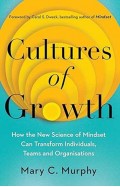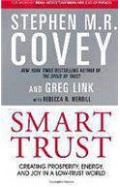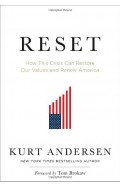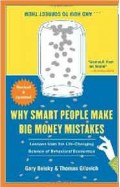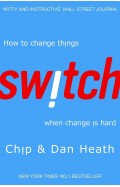- Home
- Non Fiction
- Business & Management
- Business & Economics
- The Price is Wrong - Why Capitalism Won't Save the Planet
The Price is Wrong - Why Capitalism Won't Save the Planet
By: Brett Christophers
-
Rs 6,475.50
- Rs 7,195.00
- 10%
You save Rs 719.50.
Due to constant currency fluctuation, prices are subject to change with or without notice.
Why the market will never solve the Climate Crisis
What if our understanding of capitalism and climate is back to front? What if the problem is not that transitioning to renewables is too expensive, but that saving the planet is not sufficiently profitable?
This is Brett Christophers' claim. The global economy is moving too slowly toward sustainability because the return on green investment is too low.
Today's consensus is that the key to curbing climate change is to produce green electricity and electrify everything possible. The main economic barrier in that project has seemingly been removed. But while prices of solar and wind power have tumbled, the golden era of renewables has yet to materialize.
The problem is that investment is driven by profit, not price, and operating solar and wind farms remains a marginal business, dependent everywhere on the state's financial support.
We cannot expect markets and the private sector to solve the climate crisis while the profits that are their lifeblood remain unappetizing. But there is an alternative to providing surrogate green profits through subsidies: to take energy out of the private sector's hands.
An essential intervention, The Price Is Wrong is as politically far-reaching as it is factually illuminating.
Why the market will never solve the Climate Crisis
What if our understanding of capitalism and climate is back to front? What if the problem is not that transitioning to renewables is too expensive, but that saving the planet is not sufficiently profitable?
This is Brett Christophers' claim. The global economy is moving too slowly toward sustainability because the return on green investment is too low.
Today's consensus is that the key to curbing climate change is to produce green electricity and electrify everything possible. The main economic barrier in that project has seemingly been removed. But while prices of solar and wind power have tumbled, the golden era of renewables has yet to materialize.
The problem is that investment is driven by profit, not price, and operating solar and wind farms remains a marginal business, dependent everywhere on the state's financial support.
We cannot expect markets and the private sector to solve the climate crisis while the profits that are their lifeblood remain unappetizing. But there is an alternative to providing surrogate green profits through subsidies: to take energy out of the private sector's hands.
An essential intervention, The Price Is Wrong is as politically far-reaching as it is factually illuminating.
The Price is Wrong - Why Capitalism Won't Save the Planet
By: Brett Christophers
Rs 6,475.50 Rs 7,195.00 Ex Tax :Rs 6,475.50
Zubin Mehta: A Musical Journey (An Authorized Biography)
By: VOID - Bakhtiar K. Dadabhoy
Rs 472.50 Rs 1,050.00 Ex Tax :Rs 472.50
On War (Classics of World Literature)
By: Carl von Clausewitz
Rs 2,065.50 Rs 2,295.00 Ex Tax :Rs 2,065.50
The Algorithm - How AI Can Hijack Your Career and Steal Your Future
By: Hilke Schellmann
Rs 6,925.50 Rs 7,695.00 Ex Tax :Rs 6,925.50
Smoke And Ashes - A Journey Through Hidden Histories
By: Amitav Ghosh
Rs 3,595.50 Rs 3,995.00 Ex Tax :Rs 3,595.50
How the World Made the West - A 4,000-Year History
By: Josephine Quinn
Rs 3,775.50 Rs 4,195.00 Ex Tax :Rs 3,775.50
Why We Die - The New Science of Ageing and the Quest for Immortality
By: Venki Ramakrishnan
Rs 5,665.50 Rs 6,295.00 Ex Tax :Rs 5,665.50
Cultures of Growth - How the New Science of Mindset Can Transform Individuals, Teams and Organisations
By: Mary C. Murphy
Rs 4,315.50 Rs 4,795.00 Ex Tax :Rs 4,315.50
The Black Swan The Impact Of The Highly Improbable
By: Nassim Nicholas Taleb
Rs 2,965.50 Rs 3,295.00 Ex Tax :Rs 2,965.50
Beyond The Crash: Overcoming The First Crisis Of Globalisation
By: Gordon Brown
Rs 355.50 Rs 395.00 Ex Tax :Rs 355.50
Reset: How This Crisis Can Restore Our Values and Renew America
By: Kurt Andersen
Rs 450.00 Rs 500.00 Ex Tax :Rs 450.00
Powershift Knowledge Wealth And Violence at the Edge of the 21st Century
By: Alvin Toffler
Rs 1,271.25 Rs 1,695.00 Ex Tax :Rs 1,271.25
High Financier: The Lives And Time Of Siegmund Warburg
By: Niall Ferguson
Rs 1,787.50 Rs 2,750.00 Ex Tax :Rs 1,787.50
Why Smart People Make Big Money Mistakes and How to Correct Them
By: Gary Belsky
Rs 627.75 Rs 1,395.00 Ex Tax :Rs 627.75
Switch: How to change things when change is hard - (PB)
By: Dan Heath
Rs 767.25 Rs 1,395.00 Ex Tax :Rs 767.25
On War (Classics of World Literature)
By: Carl von Clausewitz
Rs 2,065.50 Rs 2,295.00 Ex Tax :Rs 2,065.50
The Algorithm - How AI Can Hijack Your Career and Steal Your Future
By: Hilke Schellmann
Rs 6,925.50 Rs 7,695.00 Ex Tax :Rs 6,925.50
Smoke And Ashes - A Journey Through Hidden Histories
By: Amitav Ghosh
Rs 3,595.50 Rs 3,995.00 Ex Tax :Rs 3,595.50
How the World Made the West - A 4,000-Year History
By: Josephine Quinn
Rs 3,775.50 Rs 4,195.00 Ex Tax :Rs 3,775.50
Why We Die - The New Science of Ageing and the Quest for Immortality
By: Venki Ramakrishnan
Rs 5,665.50 Rs 6,295.00 Ex Tax :Rs 5,665.50
Cultures of Growth - How the New Science of Mindset Can Transform Individuals, Teams and Organisations
By: Mary C. Murphy
Rs 4,315.50 Rs 4,795.00 Ex Tax :Rs 4,315.50
No recently viewed books available at the moment.
Zubin Mehta: A Musical Journey (An Authorized Biography)
By: VOID - Bakhtiar K. Dadabhoy
Rs 472.50 Rs 1,050.00 Ex Tax :Rs 472.50
The Price is Wrong - Why Capitalism Won't Save the Planet
By: Brett Christophers
Rs 6,475.50 Rs 7,195.00 Ex Tax :Rs 6,475.50
On War (Classics of World Literature)
By: Carl von Clausewitz
Rs 2,065.50 Rs 2,295.00 Ex Tax :Rs 2,065.50
The Algorithm - How AI Can Hijack Your Career and Steal Your Future
By: Hilke Schellmann
Rs 6,925.50 Rs 7,695.00 Ex Tax :Rs 6,925.50
Smoke And Ashes - A Journey Through Hidden Histories
By: Amitav Ghosh
Rs 3,595.50 Rs 3,995.00 Ex Tax :Rs 3,595.50
How the World Made the West - A 4,000-Year History
By: Josephine Quinn
Rs 3,775.50 Rs 4,195.00 Ex Tax :Rs 3,775.50
Why We Die - The New Science of Ageing and the Quest for Immortality
By: Venki Ramakrishnan
Rs 5,665.50 Rs 6,295.00 Ex Tax :Rs 5,665.50
Cultures of Growth - How the New Science of Mindset Can Transform Individuals, Teams and Organisations
By: Mary C. Murphy
Rs 4,315.50 Rs 4,795.00 Ex Tax :Rs 4,315.50












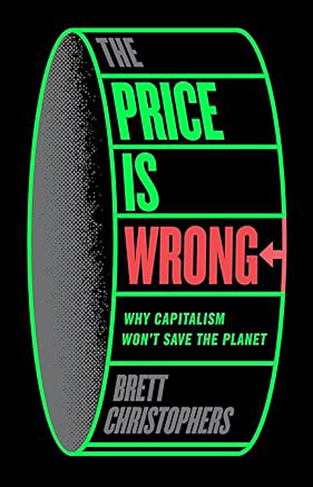
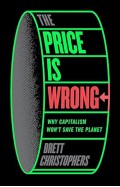
-120x187.jpg?q6)










